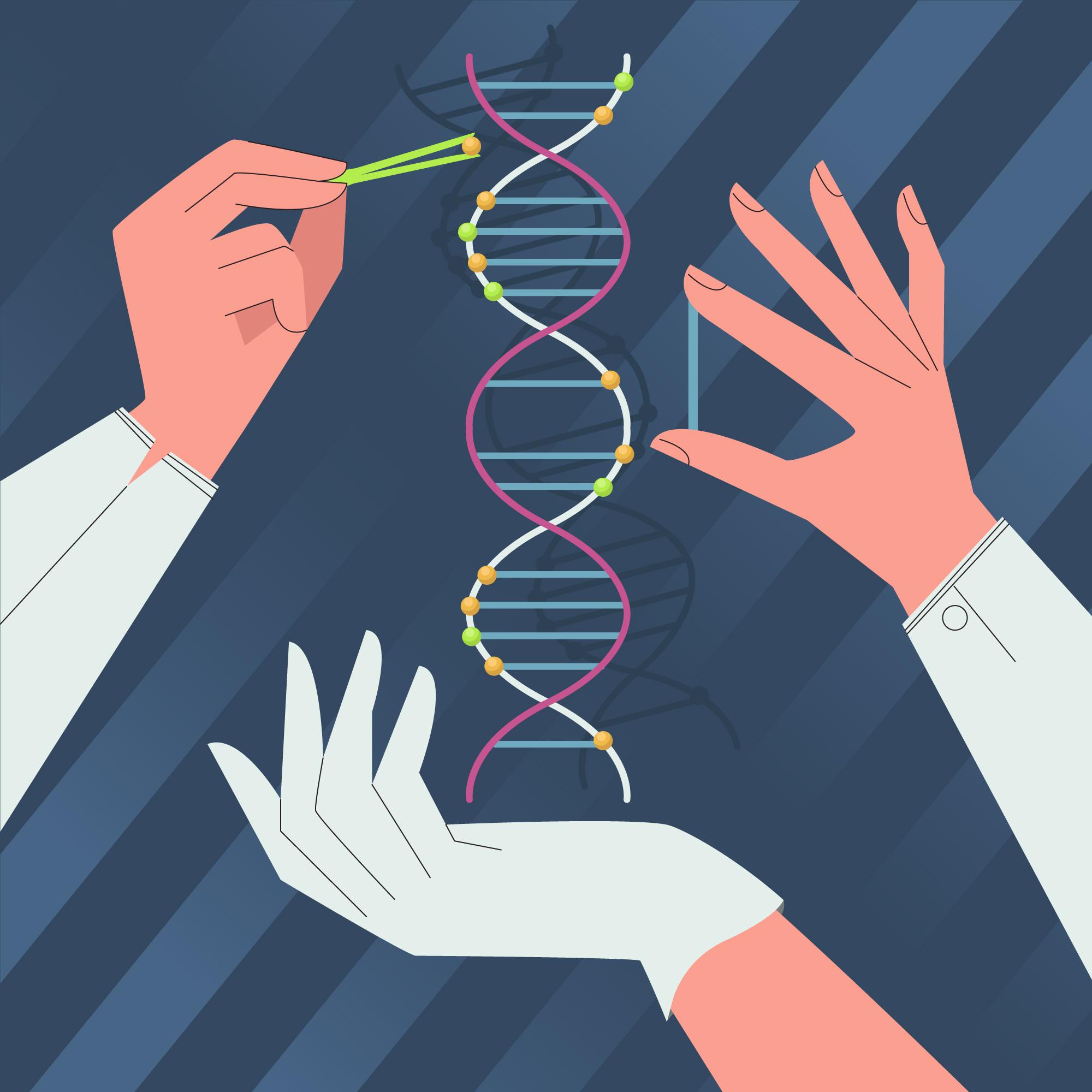

Researchers from St. Anna Children’s Cancer Research Institute, the CeMM Research Center for Molecular Medicine of the Austrian Academy of Sciences (AW), and the Medical University of Vienna have discovered a completely new disease that links disruptions of blood formation, the immune system, and inflammation. This research lays the groundwork for a better understanding of comparable disorders. The researchers have recently published their findings in the New England Journal of Medicine, marking a watershed moment.
A newly identified defect in the DOCK11 gene leads to abnormalities in both white and red blood cells. Such rare and previously unknown diseases provide valuable insights into the fundamental principles of blood formation and the immune system. They allow us to better understand the dysregulated processes underlying these diseases,” explains Kaan Boztug, senior author of the study and Scientific Director of St. Anna Children’s Cancer Research Institute (St. Anna CCRI).
The gene abnormality was discovered in a young patient from Spain, where no explanation for the severe inflammation affecting numerous organs such as the kidneys, intestines, and skin could be established despite repeated examinations. The treating physician then phoned the St. Anna CCRI and successfully provided blood samples from the patient. The cause was discovered by the world’s leading center for uncommon illnesses of blood formation and the immune system.
“We work closely with international partner institutions to understand such diseases and help the patients,” says Boztug, who is also a Professor in the field of Pediatrics and Inflammation Research at the Medical University of Vienna and an Adjunct Principal Investigator at the CeMM Research Center for Molecular Medicine of the Austrian Academy of Sciences.
Three more patients with the same gene variation
The patient’s genome sequencing revealed a significant deficiency in the DOCK11 gene, which is essential in cell communication and has not before been linked to any human disease.
“Initially, we had only one patient and therefore did not know which symptoms were related to the gene defect and which were just additional accompanying manifestations. That was quite a challenge,” says Jana Block, first author of the publication and a Ph.D. student in Boztug’s research group at St. Anna CCRI and CeMM. Through their international collaborations, the researchers managed to find additional patients with similar DOCK11 mutations, which helped provide a clearer understanding of the disease.
DOCK11 regulates blood formation
One of the patients suffered from a significantly reduced number of red blood cells and required regular blood transfusions. “Anemia often occurs with immune deficiencies, and often, a person’s own red blood cells are destroyed by autoantibodies that target their own blood cells. In healthy people, however, this does not happen,” says Jana Block. “However, in our investigations, we did not find such autoantibodies.”
The researchers used a zebrafish model to determine the cause of the decreasing quantity of red blood cells. The DOCK11 mutation impeded blood cell production, resulting in a unique mechanism for anemia, or a lack of red blood cells.
DOCK11 regulates T lymphocytes
DOCK11’s significance in humans has previously been unknown; previous research had indicated the protein’s importance in the formation of B cells in mice models. The researchers have now demonstrated that, to some extent, B cells do not mature properly in patients with DOCK11 deficiency, while other immune cells known as T lymphocytes are overactivated.
The protein appears to play a role in keeping the activation of T cells within a certain range,” explains Block. This is important because overactivation can lead to damage to surrounding tissues and organs, especially in the absence of an actual pathogen. A connection between T-cell defects and predisposition to tumor diseases is observed in other immune deficiencies and cannot be ruled out in the case of DOCK11 deficiency. “We will certainly investigate this question further in our research,” says Boztug.
Stem cell transplantation as a therapy option
Although not all aspects of DOCK11’s activity are known, researchers believe that transplanting blood-forming stem cells could heal the condition.
“Of course, these questions need to be investigated in future studies. It is also conceivable that DOCK11 deficiency could be treated through gene therapy,” says Boztug.
The fact that there is now hope for the development of therapies has a very special significance for the scientists: “Our work over the past five years is undoubtedly a significant milestone, but we are also aware that several of the patients have died from the disease,” says Block. The researcher hopes that now other centers will become aware of this gene mutation and further advance the exploration of this disease.
“This disease is truly severe, so we see it as our mission not only to understand the biological processes but also to develop effective therapeutic strategies based on that,” adds Boztug.
more recommended stories
 Nanoplastics in Brain Tissue and Neurological Risk
Nanoplastics in Brain Tissue and Neurological RiskKey Takeaways for HCPs Nanoplastics are.
 AI Predicts Chronic GVHD Risk After Stem Cell Transplant
AI Predicts Chronic GVHD Risk After Stem Cell TransplantKey Takeaways A new AI-driven tool,.
 Red Meat Consumption Linked to Higher Diabetes Odds
Red Meat Consumption Linked to Higher Diabetes OddsKey Takeaways Higher intake of total,.
 Pediatric Crohn’s Disease Microbial Signature Identified
Pediatric Crohn’s Disease Microbial Signature IdentifiedKey Points at a Glance NYU.
 Nanovaccine Design Boosts Immune Attack on HPV Tumors
Nanovaccine Design Boosts Immune Attack on HPV TumorsKey Highlights Reconfiguring peptide orientation significantly.
 High-Fat Diets Cause Damage to Metabolic Health
High-Fat Diets Cause Damage to Metabolic HealthKey Points Takeaways High-fat and ketogenic.
 Acute Ischemic Stroke: New Evidence for Neuroprotection
Acute Ischemic Stroke: New Evidence for NeuroprotectionKey Highlights A Phase III clinical.
 Statins Rarely Cause Side Effects, Large Trials Show
Statins Rarely Cause Side Effects, Large Trials ShowKey Points at a Glance Large.
 Anxiety Reduction and Emotional Support on Social Media
Anxiety Reduction and Emotional Support on Social MediaKey Summary Anxiety commonly begins in.
 Liquid Biopsy Measures Epigenetic Instability in Cancer
Liquid Biopsy Measures Epigenetic Instability in CancerKey Takeaways Johns Hopkins researchers developed.

Leave a Comment